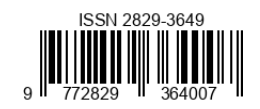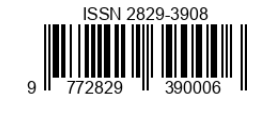Revealing the Salience of Hashtags on the @pulauplastik Account Through Ecolinguistics Lens
DOI:
https://doi.org/10.56910/literacy.v3i2.1630Kata Kunci:
Enviromental Hasthag, Salience, EcolinguisticAbstrak
This study investigates the salience of hashtags used on the @pulauplastik Instagram account through the lens of ecolinguistics. Captions and photos were used to collect data from the @pulauplastik Instagram account. Data was analyzed using ecolinguistic theory of salience. Through an ecolinguistic perspective, this research reveals the importance of using hashtags in campaigning for environmental preservation via Instagram social media, especially the @pulsplastic account. The results of this research show that effective use of hashtags can increase the salience of environmental conservation issues, attract users' attention, and encourage active participation in conservation efforts. As such, this research provides a valuable contribution to environmental communications strategy, offering practical guidance for activists, policymakers, and communities in designing more effective campaigns in the digital era. Using salience or prominence in hashtags can show how language can play an important role in increasing awareness and participation of social media users on the issue of plastic pollution and environmental conservation.
Keywords Environmental Hasthag, Salience, Ecolinguistic
Referensi
Ayu Ekasari. (2020). Campaigning Reusable Bag: The Role of Retailers to Achieve Sustainable Consumption. Proceedings of the International Conference on Management, Accounting, and Economy (ICMAE 2020).
Bungin, B. (2003). Analisis Data Penelitiam Kualitatif (September). PT Raja Grafindo Persada.
Creswell, J. W. (2014). Research Design Qualitative, Quantitative, and Mixed Methods Approaches. (4th ed.). SAGE Publications, Inc.
Mihardja et al. (2021). Campaign “BOTAK” (bogor without plastic bags) as an environmental communication model for reducing plastic waste in the marine environment. IOP Conference Series: Earth and Environmental Science.
Qui, J. (2013). A Critical Study of English Eco-hotel Profiles – Based on Fairclough’s Three-dimentional Model. Theory and Practice in Language Studie, 3(10).
Stibbe, Arran. (2015). the story we live by. Routledge.
Urip, Mulyadi. (2018). Gerakan Sosial di Media Sosial (Analisis Wacana Kritis Gerakan Sosial Melalui Hastag #ShameOnYouSBY di Twitter). . Jurnal Serial Online Undip.
Unduhan
Diterbitkan
Cara Mengutip
Terbitan
Bagian
Lisensi
Hak Cipta (c) 2024 LITERACY : International Scientific Journals of Social, Education, Humanities

Artikel ini berlisensiCreative Commons Attribution-ShareAlike 4.0 International License.







